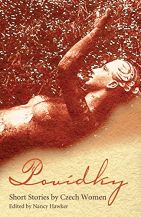— C. K. Williams, born in 1936
Mikhail Baryshnikov: “Water is his church, Brodsky’s church.”
Then, comes the Medium through which these thoughts choose to come to us. Literature, in all its myriad forms. Books, films, features, drama and what not. And close on the heels of these formats of expression comes the most important question. What is more important? Is it the Literature of Politics or is it the Politics of Literature?
"Never the Spirit was Born
The Spirit shall cease to be Never
Never was Time, it was not End
End and Beginning are Dream
Birthless and Deathless and Changeless
Remaineth the Spirit forever
Death hath not touched it at all
Dead though the house of it seems!" (The GITA) (via Gikka Imrichova)
The Politics of Literature and the Literature of Politics Pravda aka Truth - Post Truth
Wildlife Photographer of the Year 2017 – the winners

Mikhail Baryshnikov: “Water is his church, Brodsky’s church.”
Then, comes the Medium through which these thoughts choose to come to us. Literature, in all its myriad forms. Books, films, features, drama and what not. And close on the heels of these formats of expression comes the most important question. What is more important? Is it the Literature of Politics or is it the Politics of Literature?
"Never the Spirit was Born
The Spirit shall cease to be Never
Never was Time, it was not End
End and Beginning are Dream
Birthless and Deathless and Changeless
Remaineth the Spirit forever
Death hath not touched it at all
Dead though the house of it seems!" (The GITA) (via Gikka Imrichova)
The Politics of Literature and the Literature of Politics Pravda aka Truth - Post Truth
Wildlife Photographer of the Year 2017 – the winners

“Raw, brutal and unforgiving” – Povidky – short stories by Czech women, ed. by Nancy Hawker
‘The People of the Broken Neck’ is chilling and beautifully written story of PTSD: book review
“People have no respect, no empathy for other people; they have no sense of who other people are. There’s a kind of withering away of the human sensibility, and that leads to the collapse of just about everything.”
– James Purdy
Scientists: Our Bodies Feel Music, Not Just Hear It

"The past few decades of work in the cognitive sciences of music have demonstrated with increasing persuasiveness that the human capacity for music is not cordoned off from the rest of the mind. On the contrary, music perception is deeply interwoven with other perceptual systems, making music less a matter of notes, the province of theorists and professional musicians, and more a matter of fundamental human experience." … [Read More]

When did fiction become so dangerous? | The Spectator
The ‘own voices’ policy conveys to reviewers that their primary job is not to assess a book’s storytelling, but to rate its adherence to a left-wing catechism (the fairness of whose tenets is presumably self-evident), to identify authorial heretics, and to stick the apostates’ heads on spikes along the digital public highway. Reviewing for Kirkus is now a cross between penning literary criticism and joining a shooting party, a sufficiently athletic undertaking that it really should pay better
Apparently: "We're currently in the middle of CanLit's annual awards season", and in The Globe and Mail Mark Medley examines the proliferation of (Canadian) literary prizes, in Everyone's a winner.
He goes so far as to admit:
In a decade spent covering Canada's literary scene, I've sometimes felt as if I've devoted more time to writing about prizes than writing about the books themselves.Of course, it's a phenomenon that's hardly limited to Canada -- and/but much of the discussion in the article suggests many of the reasons it's a popular phenomenon all over.
(See also, for example, Michael Caines amusingly noting the "running joke" at the TLS of the 'All Must Have Prizes Prize'.)

At The Wire Ranbir Sidhu worries/complains that The Literary Oligarchy Is Killing Writing.
While I think this is somewhat of an oversimplification (okay, way over the top -- though I almost like the idea of there being an actual 'literary oligarchy' we could be trying to topple ...), there's still quite a lot of interest here. And a definite boo-hiss to Bharati Mukherjee advising "Write what you know" -- the world's least interesting sort of writing (yes, yes, it's more complicated than that, but ...).
Still, try not to roll your eyes too much on finding that there are still folks writing pretend-wide-eyed stuff like:
For years, I sustained myself on the idea of a literary meritocracy, that good writing, and writers, rise to the top.Surely familiarity with literary history, from every era, -- and the world all around -- should have disabused him of such absolutely ridiculous notions.
Meanwhile, note also that personal writing of an 'other' experience can be similarly fraught: see the Scroll.in piece in which Perumal Murugan reports: "It wasn't easy to persuade contributors, some of whom who feared retribution"